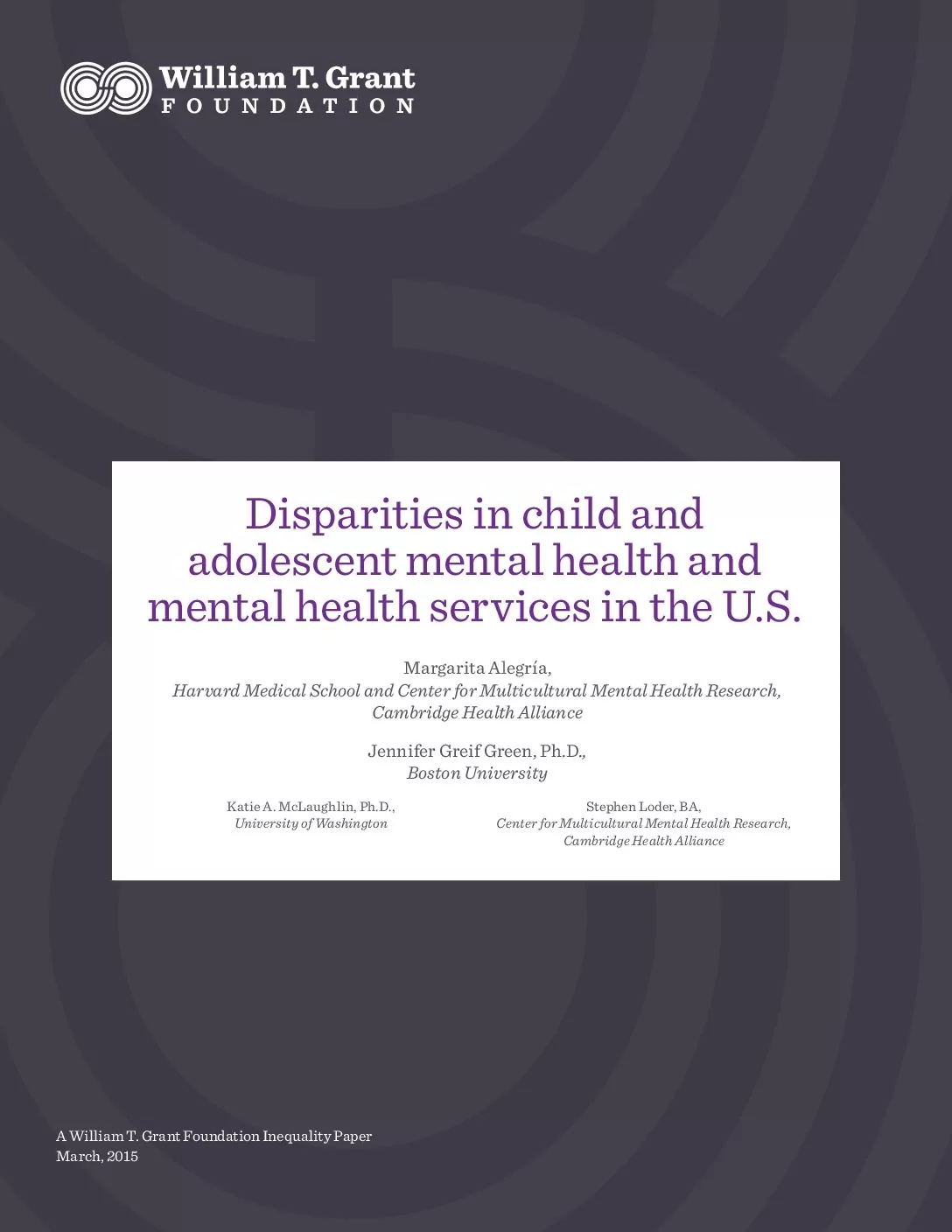Abstract
Mental health is recognized as a central determinant of individual well-being, family relationships, and engagement in society, yet there are considerable variations in mental health and mental health care according to race and ethnicity among youth in the U.S. In this report, Margarita Alegría and colleagues investigate disparities in mental health and mental health services for minority youth. Taking a developmental perspective, the authors explore four areas that may give rise to inequalities in mental health outcomes, highlight specific protective factors and barriers to care, and, finally, outline an agenda for future research.
The authors write, “Over the past decade, the study of inequality in health and mental health has grown rapidly, with researchers seeking to quantify the extent of the problem, identify causal mechanisms, and develop interventions to eliminate specific disparities. Even so, inequity persists, and in most areas of health care progress has been limited and incremental in nature. There is good reason to believe that a renewed focus on prevention of youth mental health problems among minorities could not only yield more rapid results, but could also drastically reduce overall inequality in the long-term.”






